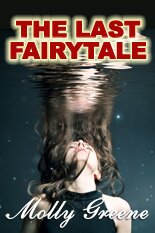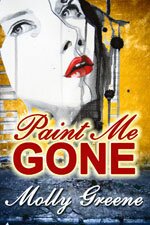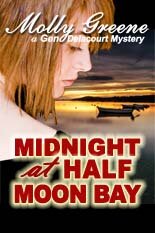 Not sold on blogging? I think you should be, but it’s your choice. As a marketing tool, blogging has proven effective for many businesses. According to online marketer HubSpot’s 2012 Marketing Benchmarks report, websites that post new blog content even once or twice a month get much more traffic than those that don’t blog at all.
Not sold on blogging? I think you should be, but it’s your choice. As a marketing tool, blogging has proven effective for many businesses. According to online marketer HubSpot’s 2012 Marketing Benchmarks report, websites that post new blog content even once or twice a month get much more traffic than those that don’t blog at all.
That’s right: Consistently adding good content via a well-written blog is one of the best ways to attract traffic. While on your site, visitors see who you are and that you have product for sale. That’s the point, along with encouraging visitors to subscribe to your email list so you have the chance to notify them – without being aggressive – when you launch new book titles. And stuff like that.
Every post forges another path to your site. Attracting readers is one of the best reasons to blog, but there are others. Let’s review the pros and cons of blogging.
Cons: If you look, you’ll find many reasons not to blog
1. Too much competition
I’ve heard the argument that a million great blogs already exist and a new blogger can’t compete. I’ve heard people say if you start a blog now, your voice will be lost on the Internet’s busy superhighways. I disagree. Most any blog can thrive, if you’re determined and persistent. You can succeed if you’re in it for the long haul.
As a writer, you compete with other books and authors, and your unique voice and style must stand out to succeed. The same is true in as you go head-to-head in the world of blogging. Fact, not fiction: Even in a competitive blogosphere, you can attract attention and produce results. Don’t let the competition scare you off.
So-called rules defining the “right” way to blog can be confusing. Potential bloggers read these myths and decide it’s too much work. They come to the conclusion blogging isn’t for them. Although best practices do exist, there is no right way to blog. What works for one may not work for another.
2. Length and frequency of posts can be daunting
In the past, experts insisted that bloggers must post at least three times a week to be successful, but that rule is dead. I’ve proven it for myself on my own blog. Author and Blogger Anne R. Allen calls it “slow blogging,” posting just once a week. Much more than that, and eventually you’ll struggle to keep your quality high, or give up.
People are overwhelmed with email, and bloggers who over-share can drive subscribers away. They’ll leave you. So post less, be consistent about when you publish new posts, and make your content top-notch. It works.
As for article length, one faction says to write short posts because online readers have no attention span, another debate says posts should be long. I say deliver your thoughts as concisely as possible, and take as many words as you need to make your point. My posts are typically 1000+ words, but I’m not opposed to shorter lengths if the topic calls for brevity. The goal is to be consistent, helpful, entertaining, inspiring, or educational, and not to wear your readers out. Don’t fret about the length or frequency of your posting schedule.
3. Blogging is a time suck
Naysayers argue that blogging takes too much time. If you categorize writing posts as a stand-alone activity, this statement may be true. However, when blogging is viewed as an important tool in a solid business plan, the perspective changes. Yes, it takes time, but you can be well rewarded for your efforts. Don’t be scared away by the time commitment – leverage each post by re-writing and re-purposing them for a book, guest posts, or re-post on blogs that welcome duplicate content.
Pros: A blog offers many benefits
In my opinion, the benefits of consistent blogging far outweigh the drawbacks. Over time, your blog will …
1. Improve your writing, both fiction and non-fiction
Writing weekly blog posts helped me become a better, faster, more confident blog post writer. That translated into being a better, faster, more confident and well-rounded writer overall. Writing blog posts has improved my fiction.
2. Help you build a community of colleagues, supporters, and readers
You’ll meet readers, authors, and other bloggers as you write, publish, promote your blog, and invite guest bloggers to set up shop on your website. As you connect, this group will support you, educate you, and help you promote your blog and your books. And vice versa.
3. Educate you about the online world
Your blog can help you learn about social media, blog promotion, and website development on a small scale at your own pace, as you build your blog and learn to effectively promote your posts – and your website – via social media platforms.
4. Help you write a non-fiction book or two
That’s right. EVERY blogger can package posts into some kind of non-fiction book. I repeat: Even fiction authors have non-fiction-related interests and expertise they can explore on their author blogs. Start with real-world topics you include in your novels. Plan a series of posts and morph those posts into an ebook to sell or give away (to attract even more subscribers). Note: Traditional publishers may frown on this, so check first.
I blogged my book Blog It! into reality, and have now outlined two more nonfiction books I plan to blog into existence. I’ll continue to do this going forward. My posts have turned into a source of income. I’m building an annuity. You can, too, if you give it a little thought.
5. Flex your creative muscle
Before I started blogging in 2011, I felt I didn’t have much to say. I literally did not know what to blog about. Since then, I’ve learned to approach it creatively. Everything I think, do, and learn has the potential to become a blog post with the right spin – maybe even ultimately a part of another book. If you need writing prompts, check out my post, 101 Fabulous Blog Topic Ideas.
6. Build your all-important author platform
Depending on Facebook might be a mistake. Facebook owns you. They can change the rules, kick you out, limit your reach, and refuse to send your posts to your followers. They run the show. Being part of author co-ops can be a fabulous thing, but it can also be tricky – you have to ask yourself whether it’s wise to put your eggs in somebody else’s basket. Your blog, on the other hand, is yours. The work you put in benefits you. No one can overturn your decisions, shut you out, or tell you how to run your show.
Readers, what’s the biggest blogging myth that either keeps you from blogging, or that you’ve proven wrong and wish would go away? Leave a comment and share!
Enjoy this article? Subscribe to my blog and you’ll never miss my weekly posts! (Your email address will NOT be sold, shared, or rented – that’s a promise.)












Thanks much for the shout-out. Actually I didn’t invent the term “slow blogging.” The “Slow Blog Manifesto” was written in 2008 by a Canadian software designer named Todd Sieling.
But I was slow blogging before I knew that’s what it was called. A once-a-week blog has launched my career and keeps my books selling. I think it’s the best use of an author’s social media time.
Thanks, Anne. Your blog was the first place I read a reference to slow blogging and I loved the term. That’s what I’ve been doing for the past two years, as well, although I didn’t know that’s what I was doing. I just called it “one foot in front of the other!”
Molly, you’ve done it again — written something so helpful and timely that I’m forwarding it right away to a new author/friend who’s been dragging her feet about blogging at all. I’ve just published my 58th post (pretty consistently, every Monday) and was wondering, “How can I keep doing this?” And also, “WHY?” Love your suggestion about re-purposing relevant blog posts from the past (did I get that right?). As November, National Adoption Month, approaches, I will re-publish a heartwarming birthmother/daughter reunion 5-part story. You’ve informed and energized me. Thank you!
Elaine! Thanks so much, I love your excitement. Even I wonder, “will I be doing this for the rest of my life?” and, well, as long as I can think of books to create, the answer is YES. You can also make a pdf of a group of posts and give it away as an incentive to subscribe to your blog. I wrote a post about that a while back …
Your post solidified and validated everything I feel about blogging. Blogging has been nothing but positive for me – for my writing, for gaining a terrific audience, for finding/sharing support with other writers, and for encouraging me to market my books. I began as a slow blogger and believe in slow blogging – finding that I get annoyed at bloggers who send me something every or every other day. Thanks.
Thanks, Pamela. It’s great to hear that others have experienced something similar. Blogging does take patience and perseverance, and the ability to commit long-term to a task that seems impossible in the beginning. Best to you in all you do!
Another great post on blogging. I am good with my decision to blog the past 7 months, but I was glad to read your pros and cons. Definitely great value for those still on the fence.
Thanks so much, Patti!
This is very interesting, thank you. I’m inspired to work harder on my own blogging!
Thanks, Beth. Good luck and it’s worth every minute!
Just cranked out a new blog post, thanks to you!
Love your enthusiasm!
I remember reading another blogger’s post about blogging, and he said, “unless you’re getting 10,000 hits a day, it’s not worth it.” First, I wonder if he consistently (or ever) gets 10,000 hits a day. Second, regardless of hits, I like blogging because I feel like I never know who I’ll meet. Somebody really cool and interesting may stumble onto my blog and then I get a chance to know them!
Thanks, Laura! You can’t get 10,000 hits a day unless you start a blog, right? And a blog certainly can’t grow from 0 – 10,000 overnight. So I think that claim was a little crazy on that blogger’s part 🙂
Hi Molly – another great post – and thanks for reminding us about your 101 topics article: I use that frequently and quoted it when I revamped my blog recently. I love the idea of converting posts into an ebook, and am about to do that with my articles on the Business of Writing (which actually started life as a couple of lectures – isn’t repurposing wonderful).
I was interested in your comments about word count. I tend to go for 500 – 1000, but was told recently that people only read short posts and I should stick to about a paragraph. I’m glad you think differently.
Thanks, Elizabeth! Again, another “rule” that just doesn’t apply across the board. Word count depends on topic, purpose, and the goal of the post. If you’re posting 3x a week, I’d stick to a paragraph. Otherwise, write as many words as it takes to make your point.
Thanks, Molly. I’m not very consistent about my blogs (need to work on that) but I find that I get a few new “friends” with each one, and even get quite a few reading my older posts.
I agree that one of the most compelling things about keeping an author blog is the way it can improve your writing. It’s an exercise. I often go back and see how a post could have been better and reflect on how writing for the blog is a different thing than writing for a novel.
I love the slow blogging idea here too. When I first started I was super excited and went nuts posting 3-4 times a week. A time suck for sure as noted above. But once a week is very doable. Thanks for this helpful post!
Thanks, Lauren! Yeah, posting 3 times a week would probably drive me nuts, too – but once a week is completely manageable. Thanks so much for your lovely comment!
Great tips. I have 2 blogs: 1 for family all about our family life & 1 for me as a writer. I stopped blogging on my writer blog bc I was creating new fiction using writing prompts & then found out I couldn’t submit that stuff to most magazines bc they considered it published. Then I didn’t know what to write posts about…and I thought I had to do it several times a week…
Totally going to check out ur ideas for posts for once a week posting.
Thanks for the encouragement!
Thanks, Andrea. Hope you find some inspiration there!
I’ve been thinking about a blog for a while and your blog has made me think about it again. As a writer and compulsive Twitter user time passes very quickly and I didn’t think I had the time to write a blog, but as I say you’ve made me think again. Thanks for sharing this.
Thanks, Phebe. it does take a bit of time and up-front planning, but it pays off in the long run!
Gosh, I don’t know. Does the world need another 10,000 blogs on the business of writing, another 10,000 articles on how to start a writing blog, etcetera? ‘
No disrespect to this blog, which I find very well informed and uniquely useful – but the only thing that most writers seem to be able to blog about is writing, and their audience seems to be only other writers.
The same sort of thing happens on twitter, where 10,000 writers tweet all day about their books to all the other writers. All talk, no conversation; and what audience of readers really cares or follows any of these twitterers?
With specialist, perhaps non-fiction writers, they can write about their book topics. But writers writing blogs about writing for the sake of writing a blog is wearing a bit thin.
Thanks for your opinion, Shim. And thanks for your lovely comment about my blog and no offense intended, but here’s my opinion: I do not advise, personally or on my blog, that authors start or maintain blogs that publish content exclusively about writing or directed solely to other writers.
Fiction authors have a huge, diverse pool of subject matter to write about, including non-fiction topics. And, the process of writing is a huge part of their lives. They get to talk about it on their blogs if they want to. The secret is to spin the subject matter in such a way that it’s of interest to potential readers of their books. But hey, authors are readers, too. And readers who are NOT authors can also be interested in an author’s writing process. If readers aren’t interested in the content an author posts, they don’t come back. The feedback is immediate: Little or no traffic.
As a blog reader and Twitter user, you vote with your mouse. Obviously, you won’t visit or follow a blog or Twitter user who isn’t writing or tweeting content that is of interest to you. I believe blogging is valuable, beneficial, and a great education for anyone, and I do my best not to be judgmental about what other authors and bloggers choose to write, say, or do. Unless content is illegal, disrespectful, libelous, or copyright infringement, everybody is entitled to blog about whatever the heck they want.
I don’t advise authors to write about writing and try to attract other authors via their blog content. But it’s hard for me to argue against it because, although it wasn’t something I planned to do when I first started blogging, it’s worked out pretty well for me. I’m in no position to say it wouldn’t work out well for someone else.
Thanks for a great post, Molly. Also read the 101 Fabulous Blog Ideas. Just what I needed during a dry blogging ideas spell. I post about every two (sometimes three) weeks, but know that I need to post more often and in a regular way. You’ve been a great help. Thanks again.
My pleasure, Jan! Thank you so much for your lovely comment.
As usual, sound advice. I have used your 101 post suggestions list twice already to help me find a topic that would add to my blog. Thanks, Molly, for sharing your experience to help other bloggers/writers.
Thanks, Darby. So happy the blot topics post was useful!
Hi Molly,
I have and on and off relationship with my blog. Every now and then, I manage to write a post a week, sometimes I even manage to write one or two extra posts that I schedule for future dates. Most of the time though, there just doesn’t seem to be enough time, or enough enthusiasm (on my part) to devote to anything but my current WIP.
How do you (assuming you’ve had this problem) work past this?
Hi Belinda! I can relate. Here’s the process I initiated early this year to overcome it:
1) I internalized the reason I blog and committed to posting. Don’t forget that blogging brings traffic to your site, which lets people know about your books and enhances your name recognition with readers. So blogging is a roundabout tool in your book promotion tool box.
2) I host guest posters once a month, which means I’m responsible for only 3 monthly posts. (Yaaay!)
3) I outlined, chapter by chapter, THREE non-fiction books I want to create in the future, and every post I write is one of those chapters. So (almost) every blog post helps move another project forward. You can do the same – give it some thought!
4) I started to think of nearly everything I do, research, read about, and/or learn as a potential blog post. If I learn a new process, I write down the steps as I go and turn it into a blog post. If I attend a free webinar, I take notes, put my own spin on it and give the presenter credit for the content, then turn it into a blog post. This leverages your time!
Example: I can expand this comment and turn it into a post down the road. Hope this helps!
Love this advice! Yes, sometimes blogging can feel like a chore. We don’t want to keep ourselves out of the loop too long. I really have to say there is much to gain by reading your blogs Molly and Anne’s as well! Keep feeding us good stuff and I am happy to always share it! 🙂
Thanks so much, D.G.!
Hi Molly,
Your site has been a wealth of information. I also bought your book and started up a free WordPress blog, which I think would work like a charm, except that I have found that I have absolutely no inclination to blog. In fact, the more I thought about blogging, the more unhappy I became. My “muse” was angry at me for thinking about something other than my book.
Now the blog is on (perma?)hold. However, I definitely see the value in having a presence online and reaching out and connecting with others. My muse does not seem to mind me making comments to other people’s blogs, and sharing in small ways like Twitter or posting reviews on GoodReads. It just doesn’t seem to like the idea of me busting myself out with a whole website and shouting about us to the world.
What would your advice be to a person who wants to connect, but doesn’t want to do a blog at all? Is there any other path to an “author platform” that doesn’t start with creating a blog?
Thanks for all you do!
Hi Anne! Blogging isn’t for everyone, and that’s okay. However, food for thought: As an author, you should have a website. And websites get more traffic when new content is added regularly. Other than that, what you’re doing is fine!